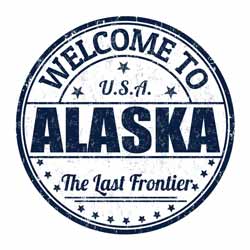Working in Alaska
Most Alaska seasonal jobs require living in communal housing, often with a roommate. While this can lead to close friendships, it can also be a test of your communication and negotiation skills.
Many resorts and adventure companies are based in remote parts of the state, far from the closest towns. While this offers unparalleled opportunities for outdoor activities, some people may find the distance from civilization stressful or frustrating. It’s important to take the location into account when choosing a resort job or other position to apply for.

Smaller companies often require seasonal employees to be flexible and willing to tackle odd jobs. Their structure tends to be looser than at large corporations, which can be either good or bad depending on your personality.
Hours can be long (up to 12 hours a day during busy times) and usually require flexibility. Many companies prefer employees willing to work different shifts.
Outdoor jobs in particular are often physically exhausting, and summer weather in Alaska can be both unpredictable and less-than-pleasant. If you take one of these jobs, be aware that you may get wet, cold, muddy, and mosquito-bitten. If you’re suited to one of these jobs, the rewards will outweigh the occasional discomfort.
— View Alaska Summer Job Postings —
Many jobs require interacting regularly with guests, like reservations clerk and wilderness guide jobs. A genuine interest in people and good public speaking skills are important for these jobs.
Note – if you working in Alaska is a goal, and you are a resident of the great state, then evaluate the ATIA travel industry scholarship as a means of helping pay for college tuition.
The cost of living in Alaska is high. If your room and board are covered, you may still be able to set money aside, but it’s a good idea to budget carefully and arrive with some savings (it may be a month or more before your first paycheck arrives).

